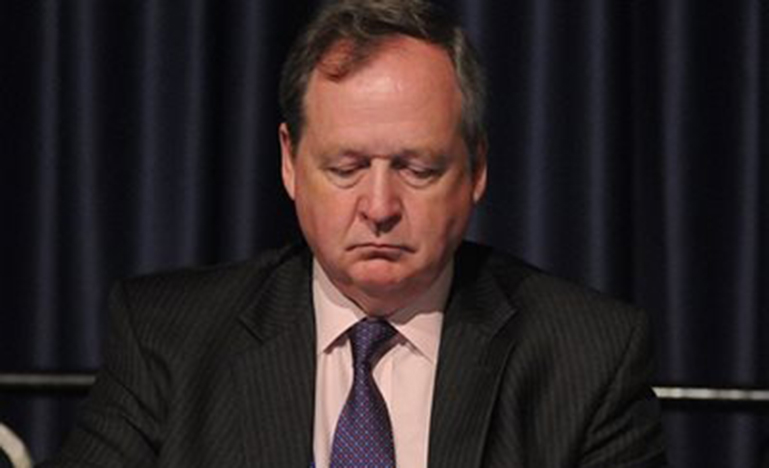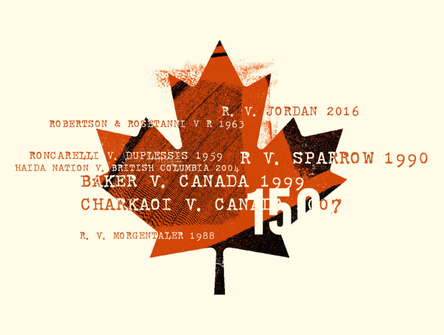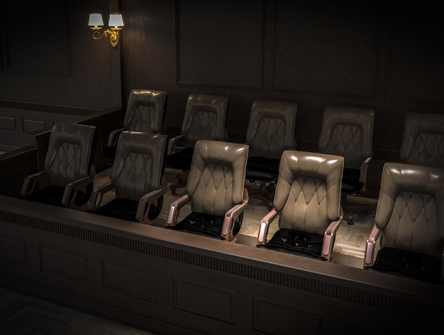Upsetting the constitutional balance
A former CBA president takes the federal government to task over its handling of its relationship with the courts.

“The system eventually breaks. That’s where we’re headed if we don’t get this fixed.”
Those are the cautioning words from Simon Potter, who told a room full of lawyers in June that the Harper government’s current trajectory should be cause for concern.
Potter, who served as president of the Canadian Bar Association from 2002 to 2003, was the keynote speaker of the Constitutional Law Conference. His message was not an optimistic one.
“We appear to have reached a place where, instead of the respectful collaboration among branches, which our constitution and our Charter and our attachment to the rule of law make so necessary, the executive branch not only sees the judiciary as an obstacle to progress but portrays it so,” he told the room.
The Canadian Charter, Potter said, is not a guide exclusively for the judiciary. Yet it appears to be the purview of the Harper government that it can claim parliamentary supremacy. Potter pointed to the government’s new prostitution legislation as proof.
“The substance of the law hardly seems responsive to the Court’s decision – nor mindful of the lives and personal security of those the Court found to be endangered,” Potter said. “One is left to wonder if this reflects an attachment to dogmatic belief, rather than any real effort to engage in the dialogue which the Court opened with its ruling.”
A week later, that exact same theory played out in a special summer sitting of the House of Commons justice committee, as two representatives from the Criminal Lawyer’s Association testified that the proposed bill wouldn’t stand up to a Charter challenge.
"Beyond a shadow of a doubt, criminalizing the sex trade brings harm for sex workers," Ottawa lawyer Leo Russomanno told the committee.
Yet the Justice Department has maintained the policy that Bedford shouldn’t be read as constricting for Parliament. Ottawa’s view is that since the legislative objectives have changed — away from nuisance, which was the core of the previous laws, and towards harm reduction — that the Supreme Court will find the laws proportionate under Section 1 of the Charter. What’s more, a source told National, since it is government’s will to criminalize the sex trade itself, the Court will have no choice but accept the supremacy of Parliament. Russomanno predicted that strategy when he spoke with National in June.
But Russomanno wholly rejects that theory. Parliamentary supremacy, he says, “doesn’t give you the right to ride roughshod over peoples’ rights.”
That tension is something Potter riffed on repeatedly in the paper, co-written by Emily MacKinnon, that was the basis for his talk.
Potter and his co-writer posited that this government has decided that Parliament should play a passive role when it comes to Charter rights — that Parliament prescribes the law, and that the court system can check for Charter compliance. Potter calls that an abrogation of Parliament’s duty to pass Charter-compliant legislation, as was prescribed in Suresh v. Canada, the second Khadr appeal, and the Insite case.
“The executive’s refusal to play its role in the dialogue upsets the constitutional balance, and prompts constitutionally unanticipated responses from the judicial branch. Among them, we see an increasing reliance on suspended declarations of invalidity,” Potter said.
He levied special attention towards the office of the Attorney General. Potter noted that the minister has a special duty to ensure the constitutionality of legislation, though he highlighted that the Department of Justice has no responsibility to test private member’s bills for Charter compliance.
“Perhaps it is a coincidence that the current government has pushed through more private members’ bills than any other government in Canadian history,” Potter said. “If this is an attempt to circumvent this scrutiny, then the Attorney General has by that policy of the executive been pushed off his post.”
Coming amid closer scrutiny to the judicial selection process, Potter also took aim at how this government has taken its duty to appoint members of the judiciary, especially in its snub of the Quebec courts.
“It is a great shame that the behaviour of the executive branch in past years makes it now a plausible subject of discussion whether the executive branch has thought of accomplishing indirectly what is clearly unconstitutional directly, and thinks it appropriate to turn the Quebec Court of Appeal into a staging area, a warehouse for PMO-identified individuals,” Potter said.
“Such political tinkering with the judicial appointment process flies in the face of the executive’s constitutional obligations.”
Later in the conference, the CBA announced new recommendations on how the federal government should go about selecting judges.
The speech concluded with a call on Ottawa to stop viewing the judiciary as an obstacle, but instead as a necessary facet of Canadian governance.
But it was after his talk, in speaking with National, that Potter laid bare the risks of not diverting course away from the current cold war.
“The system breaks. If we do not have a respectful relationship among the three branches of government, but we have an executive which is headstrong and presents the judiciary as an obstacle to what the executive wants to do rather than a partner in getting the answer right, then the system eventually breaks. That’s where we’re headed if we don’t get this fixed,” he said.
“It’s very unfortunate that we’re even having this discussion.”


